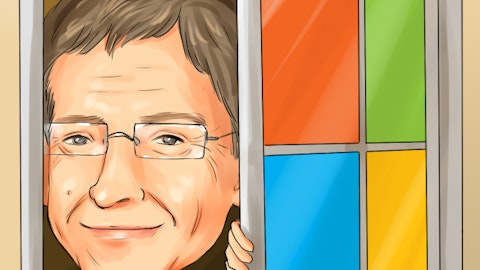Shares of GameStop Corp. (NYSE:GME) have nearly doubled in 2013, and are up more than 170% since last August. The company has shaken off threats to its business model, and bulls are looking forward to the upcoming console refresh.
Still, while there are reasons to like GameStop Corp. (NYSE:GME) right now, longer-term the company remains immensely challenged.
GameStop has bounced back from a rumor-fueled selloff

This is obviously problematic for GameStop Corp. (NYSE:GME), which continues to rely on used games. In fiscal year 2012, about a third of GameStop’s sales, and almost half of its gross profit, came from the sale of used games.
GameStop Corp. (NYSE:GME) benefited from Sony Corporation (ADR) (NYSE:SNE) announcing that they would place no restrictions on the sale of used games.
Microsoft Corporation (NASDAQ:MSFT) initially did have a plan to make used game sales difficult, but later abandoned it after widespread backlash.
Games are going digital
But the larger problem is inescapable: games are going digital. And in a digital market, there’s little room for a brick and mortar retailer, and even less room for a brick and mortar retailer dependent on selling used games — digital games cannot be resold.
Sony and Microsoft may stick with the tried and true model (for now), but new consoles — fully digital, alternative consoles — are coming.
Both Amazon and Google reportedly have Android-based consoles in the works. Given the nature of the Android operating system, it is highly unlikely that these consoles would play anything other than digital games.
Apple, too, could be planning a console, according to Valve’s CEO Gabe Newell. Valve has its own digital-based console in the works — the Steam Box. The service it’s based on, Steam, popularized the concept of digital games in the PC world.
Of course, it isn’t just used game sales that would be hurt by games going digital — about a fifth of GameStop Corp. (NYSE:GME)’s profit comes from the sale of new games. But these new games, stored in boxes and sitting on GameStop’s shelves, would disappear in a world where digital games were dominant.
Microsoft and Sony won’t keep discs around forever
Many investors may be inclined to dismiss those consoles — without seeing them in action, it’s far too soon to declare the established players dead.
Even if one discounts the threat posed by these future consoles, Microsoft and Sony are eventually going to take their business models digital — it’s only a matter of time.
Sony acquired streaming game service Gaikai last year, spending almost half a billion dollars on the company. Sony will use Gaikai’s service on the Playstation 4, offering older games for digital streaming.
But that’s just the beginning. Sony’s management has said the company dreams of offering a “Netflix of games” — a fully streaming digital service, where games are delivered based on a monthly subscription, and the concept of “owning a game” becomes as antiquated as the disc the game is on.
Certainly, this would be immensely beneficial to Sony. Games streamed from a distant server don’t require a powerful console, and powerful consoles are expensive (and thus cost-prohibitive to some consumers). If Sony could incorporate a streaming game service into its Bravia TVs, Xperia tablets and smartphones, it would expand the market for its games.
Then there’s Microsoft. Clearly, the Windows-maker wants to push the Xbox towards digital games. The widespread backlash was enough to delay the transition, but that doesn’t mean Microsoft won’t try again later.
Consider the company’s new plan for its old console, the Xbox 360. Microsoft has started to give away digital copies of older games for free with a subscription to its service, Xbox Live.
Microsoft was initially planning to require Xbox One owners to keep their consoles connected to the Internet. In theory, this would entice more developers to tap Microsoft’s cloud service for their games.




